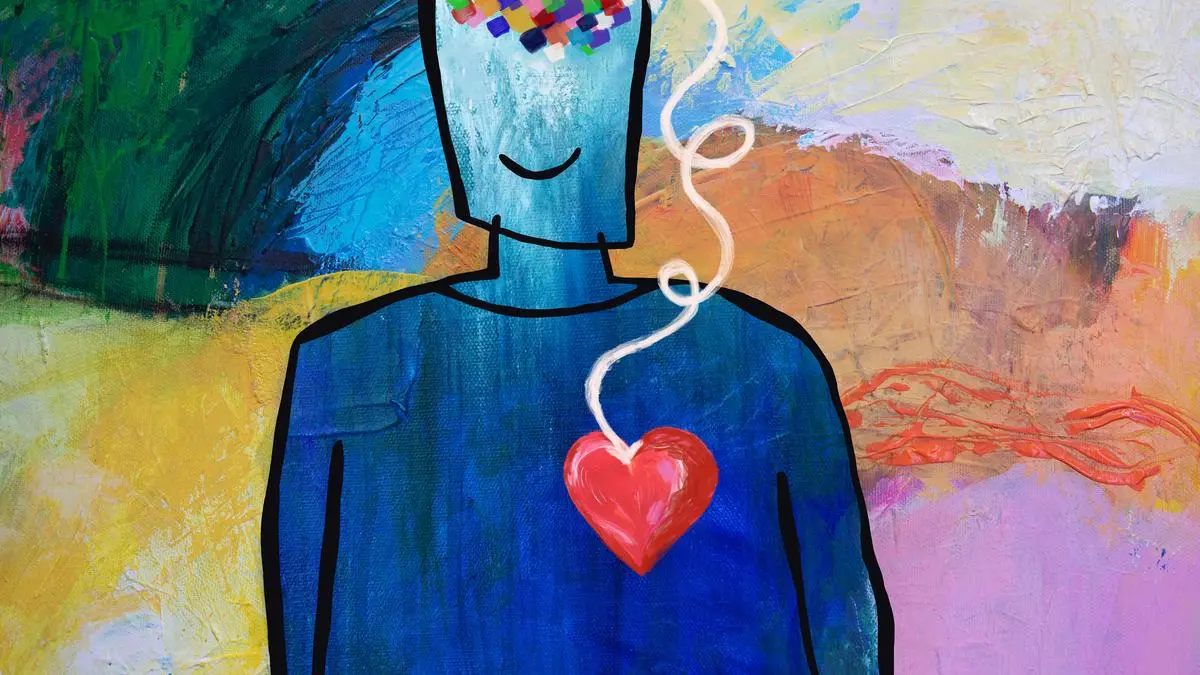By Pt Jyothi Datta
Copyright thehindubusinessline

Last week, people from over 100 different organisations met behind closed doors in the Capital, in a first-of-its-kind meeting to spotlight mental health.
They convened under the Indian Mental Health Alliance (IMHA) banner – a fledgling not-for-profit organisation that brought together an impressive line-up of attendees, including some leading ladies from the corporate world – Rohini Nilekani, Neerja Birla and Pheroza Godrej – besides Raj Mariwala, Ashish Dhawan, and Dr Prabha Chandra.
Despite leading corporate voices speaking up for mental health, it’s “not enough, unfortunately,” says Vasvi Bharat Ram, also a corporate voice – Joint Vice Chairperson, The Shri Ram Schools, and Founding Trustee of IMHA.
A personal “lived experience with mental health” about 10 years ago, with their older daughter, led to setting up IMHA, along with Amaha and Children First, says Vasvi. After Covid-19, people have opened up more about mental health, she says. But when her daughter spoke about difficulties that she experienced, it was well before Covid-19, recalls Vasvi, of a difficult time for all of them. “We didn’t know where to go, who to turn to, what to do,” she says, and despite all the resources, “it was still not an easy journey.”
Coming from a family where philanthropy was part of dinner-table conversations, though mostly focused on education, Vasvi says she and husband Ashish decided to support mental health efforts. And though it’s “awkward” to talk about one’s philanthropic activities, she says, “we are putting that discomfort aside, to speak about it because people don’t speak about it enough. ..there is still stigma.”
Vasvi’s daughter wrote a book for children and families – “C is for Cat, D is for Depression in 2019, on her experiences. “The day she said I want to write this, and even if it helps one person or one family, I am okay to put it out there and put my name out there, it was like a learning experience for me…. because she was so brave …the rest of the family also fell in line,” says Vasvi.
‘Lived experience’
IMHA’s key priorities are to establish mental health as a developmental issue, with a cross-sectoral perspective – because it impacts livelihood, education and women and children, says Neha Kirpal, IMHA founding cohort member. The alliance has 230 member organisations from 30 States and union territories, she says, and IMHA plays a catalyst’s role to amplify their work, build synergies, share knowledge, work on policy and play an influencing role with government, philanthropy and donors, she explains.
The alliance also looks at capacity building, training of the mental health community – including professionals and organisations. People with a “lived experience” and caregivers are at the centre of every conversation, moving away from a “hierarchical biomedical model,” she points out. It is a critical time for mental health, says Neha, as “we have one third of the global burden of mental health, one third of the world’s suicides, addictions and depression cases.” IMHA has set up a knowledge centre curated with credible resources, accessible across the country.
Last week’s convening witnessed discussions on adolescent wellbeing, climate change and mental health, etc with representation from SNEHA, SIMHA, Ekjut, Salaam Baalak Trust, among others, IMHA said.
‘Patient capital’
Having set up Mpower, a mental health initiative from the Aditya Birla Education Trust, close to 10 years ago, founder Neerja Birla urges corporates to support mental health efforts with a trust-based approach, and not evaluate them through the lens of “RoI” or return-on-investment, as outcomes may not be as tangible.
Mpower runs a free national mental health helpline, besides initiatives for Central Industrial Security Force (CISF) and Railway Protection Force, among others. Neerja calls for safe spaces in communities, through mental health sessions in school curriculums, besides integrating it into primary health efforts.
The IMHA looks to create an “unrestricted capital pool”, says Neha, pointing to initial funding from Vasvi and Ashish; Manisha Dhawan (Convergence Foundation) towards adolescent mental health and Pheroza Godrej towards OCD (obsessive compulsive disorders) and suicide prevention. The hope is to “build a collective of philanthropists who we are providing access to all these community-based organisations from across the country… so they can fund them directly,” she says.
Vasvi stresses the need for “patient capital” from people “willing to spend the money and spend the time on systemic change…it’s very hard to print very glossy annual reports.. you need unrestricted capital, you need long term capital and you need people who believe in this space. So, we thought, maybe if we do it and we talk about it a lot, it would maybe attract others to the space.”
Published on October 6, 2025